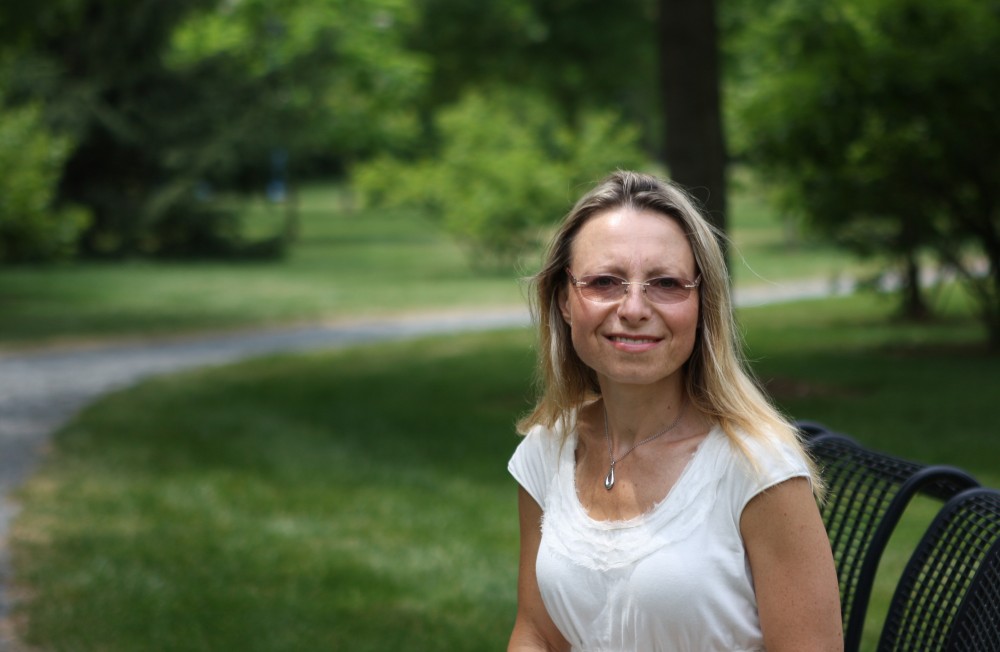Geography professor joins U.S. food agriculture panel

GVL / Eric Coulter Elena Lioubimtseva, Ph.D., Director of Environmental Studies Program and Associate Professor of Geography and Planning
Jun 18, 2012
Grand Valley State University’s Elena Lioubimtseva has been appointed to the Higher Education Panel by the U.S. Department of Agriculture’s National Institute of Food Agriculture – an opportunity the associate professor of geography sees promise in.
“(This is a) great opportunity just to provide my help not only at Grand Valley but all over the U.S.,” Lioubimtseva said.
The Higher Education Panel, made up of experts involved in fields related to food and agriculture, reviews grant requests as part of the Higher Education Challenge Grant Program. The program is open to both state-controlled public and private colleges and universities in the U.S.
Lioubimtseva said at first, she was nervous when she learned part of her appointment involved hosting an online teleconference, but she found it wasn’t as intimidating as she thought.
“I enjoyed it very much,” she said. “And it also was a good humbling experience for me.”
She recalls that there were times when she had to change her opinions and realize that she had been wrong in the way she judged a particular proposal or disagreed with another member of the panel.
Lioubimtseva was born in Russia and her last name means “lovable” in her native language. She earned her doctorate in environmental geography and a master’s degree in physical geography from Moscow State University.
From there, Lioubimtseva spent time working on post-doctoral studies in France, England, and Belgium and in 2000, accepted a position with GVSU’s then-fledgling geography program.
“I was one of the first geography faculty,” she said.
Lioubimtseva said coming to GVSU was a tremendous opportunity for her to help develop the program from the bottom up, and with a passion for nature, it was something she said she was very excited about.
In her time at GVSU, Lioubimtseva has created several new courses, a couple of her favorites being Global Environmental Change and Landscape Analysis.
Since 2007, she’s helped to create the environmental studies program, which GVSU began offering as an interdisciplinary minor in 2009. The program now boasts more than 100 students from a diverse selection of majors including art, business, engineering, and biology. It averages approximately 25 percent to 30 percent growth per semester, Lioubimtseva said. Consistent with her love of nature, Lioubimtseva takes several of her classes to various sites for hands-on learning.
“My Environmental Studies 401 pretty much camps here all the time,” she said, referring to Blandford Nature Center. “We almost never meet in the classroom.”
Aside from collecting soil samples from both Blandford Nature Center and GVSU’s own campus, Lioubimtseva’s students have been to Frederick Meijer Gardens and Sculpture Park and the Grand Rapids Public Musuem.
After the spring semester, Lioubimtseva will be traveling to the University of Versailles, one of the most sustainable universities in France. Lioubimtseva will be there hoping to sign an agreement allowing French students to come study at GVSU, and for GVSU students to study abroad in France in the areas of geography, environmental science, and sustainability.

























